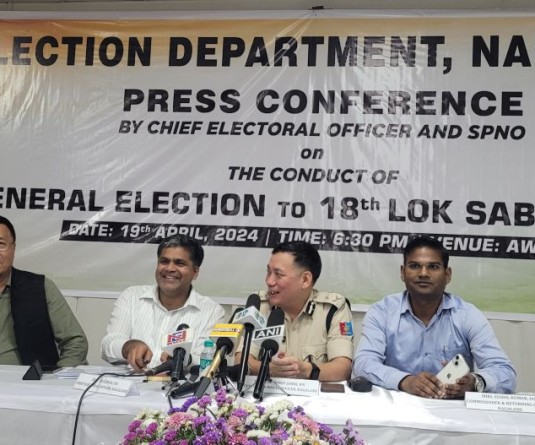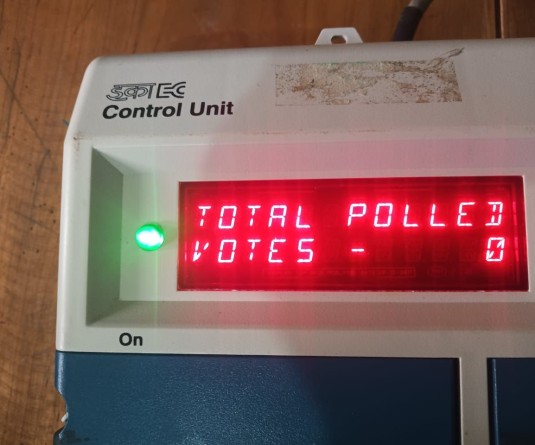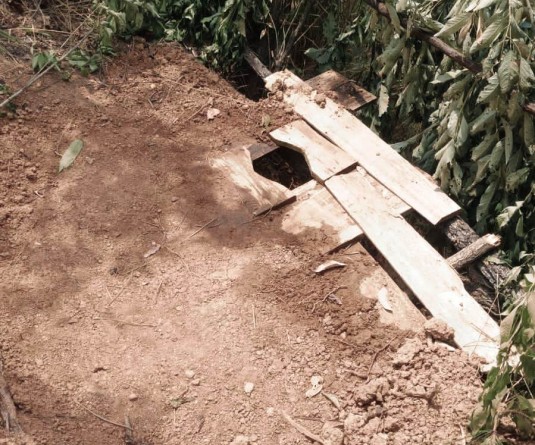
• 83% missing persons in Nagaland are below the age of 18
• 13% have been reportedly trafficked while 35% remain untraced
Morung Express News
Dimapur | April 24
Human trafficking, especially child trafficking, is definitely taking place in Nagaland but it is not recognized. As such as it is happening in its most “benign form”, said Dr. Temsula Ao, Chairperson of the Nagaland State Commission for Women (NSCW) today.
“Because of this, in a few detected cases, the parents and guardians have been found to be involved in the transactions because they honestly believe that what they are doing is for the ultimate good of their children and wards”, the NSCW chief said.
Dr. Temsula was speaking at the ‘Legal awareness programme on human trafficking’ organized by NSCW in association with National Commission for Women, New Delhi, here at Kuda Youth Club hall, on Monday.
Though underreported, Temsula said some alarming data has been revealed from the state police sources, according to which “one person in our state goes missing every 4th day. 83% are below the age of 18, 13% have been reportedly trafficked. 35% remain untraced.”
She also informed that in India, the North East including Nagaland is one of the most vulnerable regions, where cases of human trafficking are increasing every year, though many go unreported.
Citing some recent cases of rescued victims from Nagaland, Temsula said these are only few reported cases, as every year hundreds of Naga boys and girls leave their homes and villages in search of a better future.
“So what do we do? Do we blame the government and police alone? What about the parents and village authorities? Only when one of our children dies out there, then all we can do is bring the dead body home. Were we blind when they left home for the unknown dangerous place in search of a better future?” Temsula asked.
“How many times have we seen young boys and girls from interior villages being brought by respectable people to ‘educate’ them in good schools? The reason and intention appear to be very good. But do the parents know what happens to these hapless children in these homes; how they are treated and most importantly, do they actually go to school at all?” She added.
She underscored the need for every Naga village to keep proper records of its citizens, especially young boys and girls who are living in these homes, and inform their respective tribal unions in the headquarters to help monitor their progress and well being.
The NSCW Chairperson further said society should also be bold enough to include such dislocation of children as a type of human trafficking and violation of human rights in the guise of charitable activities, committed either by individual families or social groups.
And whenever cases of abuse and ill treatment of minors living in others’ homes are detected, they must be immediately brought to notice of the authorities like the Anti-Human Trafficking Units attached to the women police cells in all the districts, she informed.
Legal consultant, NSCW, Khriesinuo Kire, in her address on the topic said human trafficking is the third largest organized crime after drugs and arms trade across the globe. She also informed that close to 80% of human trafficking across the globe is done for sexual exploitation and the rest is for forced labour.
The legal consultant also briefed the women participants on the Immoral Trafficking (Prevention) Act of 1956 and different sections under which perpetrators of such offences are punishable. Khriesinuo also spoke on victim compensation, right to education (to help parents and children for education support) and setting up of legal services authorities in all districts to give legal counsel and support to those in need.
The seminar was well attended by women representatives from various Naga tribes and other communities including Muslim, Bihari, Bengali, Oriya and Gorkha communities.





